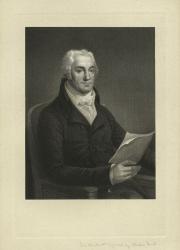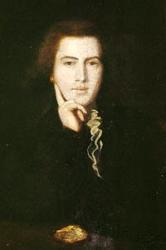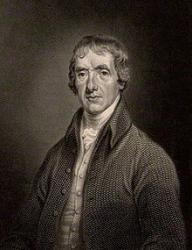1744 - 1768 Hymnal Number: 216 Author of "Father of mercies, God of love, My [Our] Father and my [our] God" in A Collection of Hymns and a Liturgy Heginbothom, Ottiwell, born in 1744, and died in 1768, was for a short time the Minister of a Nonconformist congregation at Sudbury, Suffolk. The political and religious disputes which agitated the congregation, in the origin of which he had no part, and which resulted in a secession and the erection of another chapel, so preyed upon his mind, and affected his health, that his pastorate terminated with his death within three years of his appointment. His earliest hymn, "When sickness shakes the languid corse [frame]," was printed in the Christian Magazine, Feb. 1763. In 1791 the Rev. John Mead Ray communicated several of Heginbothom's hymns to the Protestant Magazine; and in the same year, these and others to the number of 25, were published as:—
Hymns by the late Rev. Ottiwell Heginbothom of Sudbury, Suffolk. Sudbury, Printed by J. Burket, mdccxciv.
These 25 hymns were repeated in J. M Ray's Collection of Hymns from various authors in¬tended as a Supplement to Dr. Watts's Psalms and Hymns, 1799, and 12 in Collyer's Collection, 1812. In modern collections in Great Britain and America the following are in common use in addition to those annotated under their respective first lines:—
1. Blest Jesus, when my soaring thoughts. Jesus, most Precious.
2. Come, humble souls; ye mourners come. Good Hope through Grace.
3. Come saints and shout the Saviour's praise. The Second Advent.
4. Come, shout aloud the Father's grace. Praise to God the Father.
6. Father of mercies, God of love. God the Father.
6. God of our life! Thy various praise. New Year.
7. Great God, let all our [my] tuneful powers. New Year.
8. Hark, the loud trumpet of our God. National Fast.
9. Hark, 'tis your heavenly Father's call. A Prayer to be used by the Young.
10. I ask not [honour] wealth, nor pomp, nor power. Wisdom and Knowledge desired.
11. Now let my soul, eternal King. Praise of the Gospel. Sometimes given as "To Thee, my heart, eternal King."
12. See, mighty God, before Thy throne. Fifth of November; a National Hymn.
13. Sweet peace of Conscience, heavenly guest. A good Conscience.
14. To Thee, my Shepherd, and my Lord. The Good Shepherd.
15. Unhappy city, hadst thou known. Christ weeping over Jerusalem. From this the cento, "And can mine eyes without a tear?" is taken.
16. When sickness shakes the languid corse [frame]. Resignation. Printed in the Christian's Magazine, Feb. 1763, and again in Hymns, &c, 1794.
17. Yes, I will bless Thee, O my God. Praise of the Father. The text is often altered. The cento "My soul shall praise Thee, O my God," in the Unitarian Hymn land Tune] Book, &c, Boston, 1868, is from this hymn.
Most of these hymns are in Collyer's Collection, 1812. There are also 8 in Hatfield's Church Hymn Book, N.Y., 1872, and 7 in the Songs for the Sanctuary, N.Y., 1865. [William T. Brooke]
-- John Julian, Dictionary of Hymnology
Ottiwell Heginbotham



